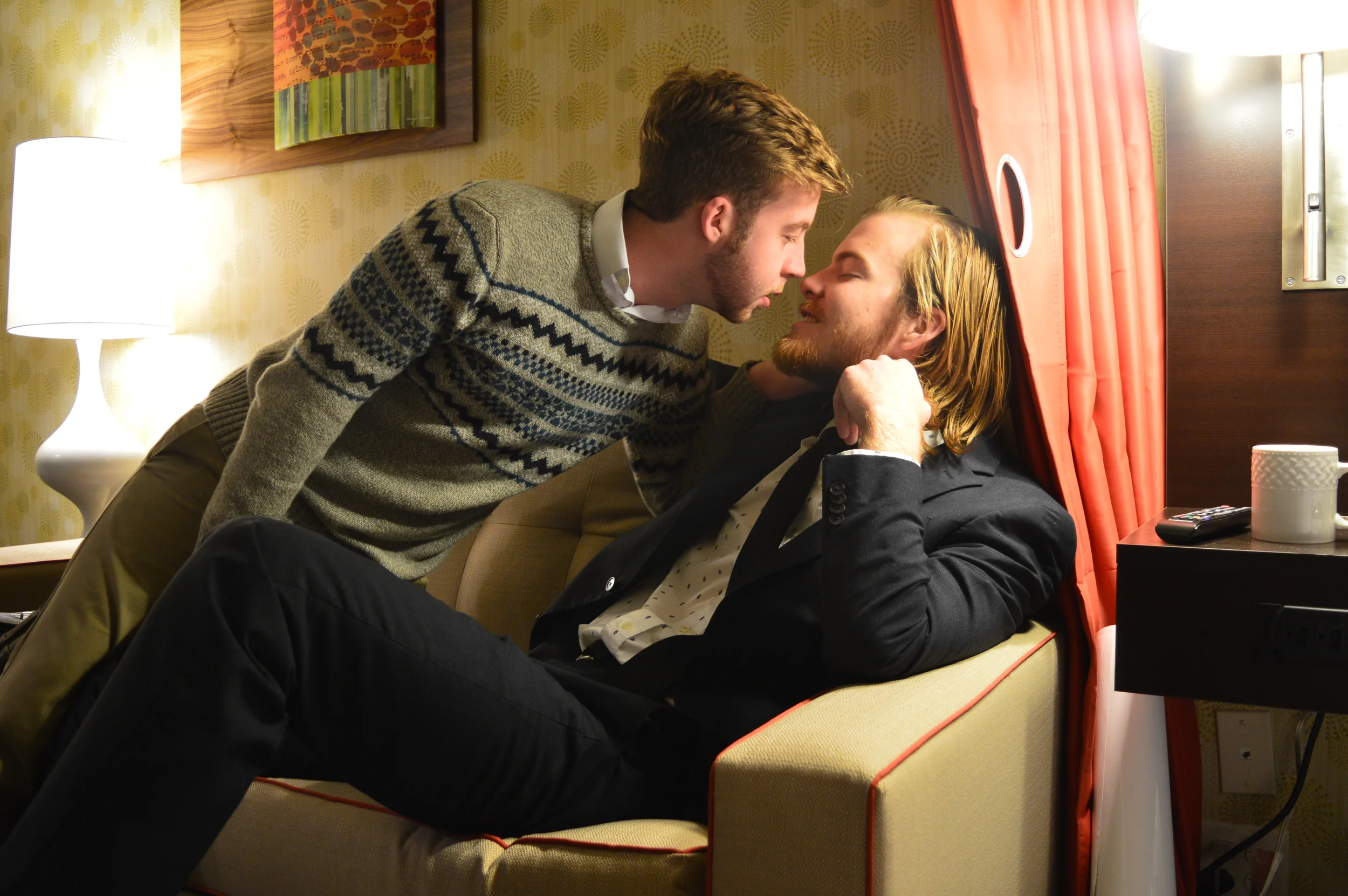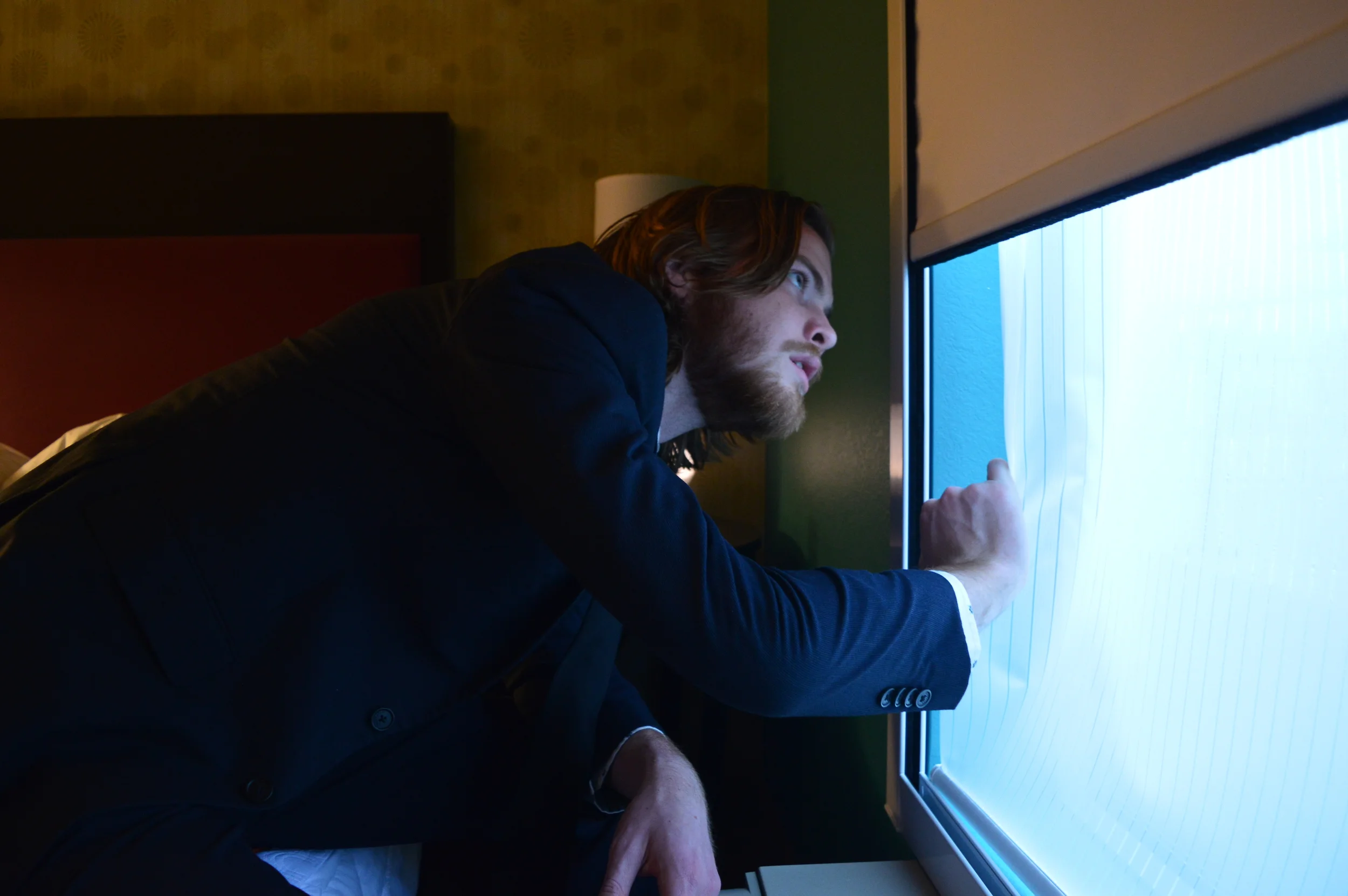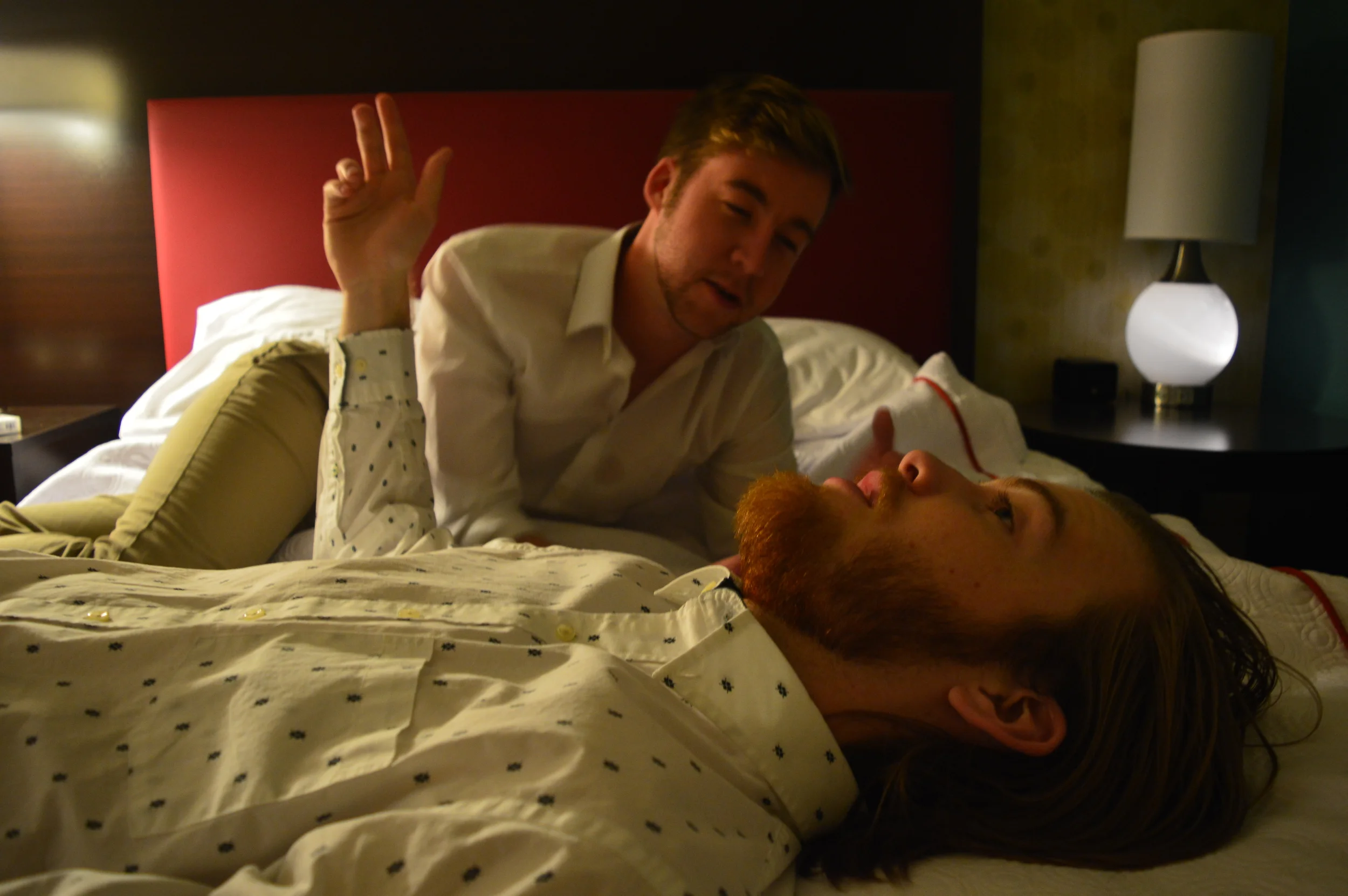










Your Custom Text Here
By Caryl Churchill
March 24-27, 2016
Home2Suites by Hilton, Tallahassee FL
Photos: Cait Cameron
Click here for my production glossary
I wanted to stage Drunk Enough To Say I Love You? as soon as I read it in 2006. Churchill wrote the play during the height of the US-led coalition’s invasions of Iraq and Afghanistan. While all of her plays are both sexual and political, this one seemed to me an angry play with a particularly potent central metaphor. It profiles a romantic relationship between two male figures: Sam, described by the play’s character breakdown as “a country,” and Guy, who Churchill classifies simply as “a man.” The play catalogues the myriad ways the United States woos, influences, and overpowers the international community on matters of policy and military intervention. Guy is sexually drawn to the manifestations of Sam’s power. Though Sam desperately seeks Guy’s approval, his pride prevents him from professing the love that Guy announces effusively. In fact, his first line in the play, in response to the title question, is a two-word repudiation of Guy’s love: “never say.”
Ten years later, I found the perfect actors (Luke Evans and George Kielty, two of my former students at FSU) and settled on the performance space. By staging Guy and Sam’s romantic trysts inside a real hotel room for audiences of eight at a time, we were able to create an intimate, voyeuristic, fly-on-the-wall atmosphere. The play seemed impossibly timely to us, not simply because the US military presences in Iraq and Afghanistan are still ongoing. Drunk Enough To Say I Love You? points towards our contemporary conversations on climate change, drone warfare, and the actions of Edward Snowden, among many other topics.
By Caryl Churchill
March 24-27, 2016
Home2Suites by Hilton, Tallahassee FL
Photos: Cait Cameron
Click here for my production glossary
I wanted to stage Drunk Enough To Say I Love You? as soon as I read it in 2006. Churchill wrote the play during the height of the US-led coalition’s invasions of Iraq and Afghanistan. While all of her plays are both sexual and political, this one seemed to me an angry play with a particularly potent central metaphor. It profiles a romantic relationship between two male figures: Sam, described by the play’s character breakdown as “a country,” and Guy, who Churchill classifies simply as “a man.” The play catalogues the myriad ways the United States woos, influences, and overpowers the international community on matters of policy and military intervention. Guy is sexually drawn to the manifestations of Sam’s power. Though Sam desperately seeks Guy’s approval, his pride prevents him from professing the love that Guy announces effusively. In fact, his first line in the play, in response to the title question, is a two-word repudiation of Guy’s love: “never say.”
Ten years later, I found the perfect actors (Luke Evans and George Kielty, two of my former students at FSU) and settled on the performance space. By staging Guy and Sam’s romantic trysts inside a real hotel room for audiences of eight at a time, we were able to create an intimate, voyeuristic, fly-on-the-wall atmosphere. The play seemed impossibly timely to us, not simply because the US military presences in Iraq and Afghanistan are still ongoing. Drunk Enough To Say I Love You? points towards our contemporary conversations on climate change, drone warfare, and the actions of Edward Snowden, among many other topics.